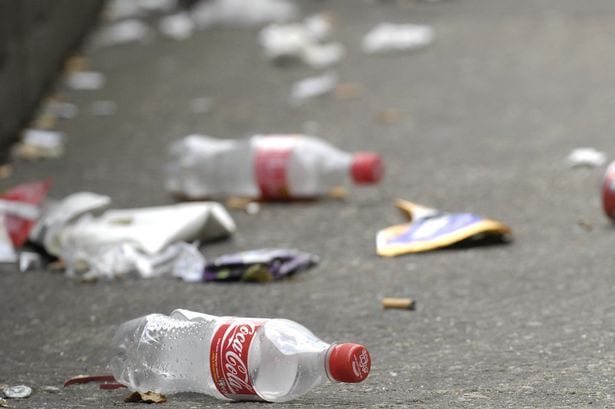Galway City had failed to make serious inroads in tackling its litter problem in lockdown, with the latest IBAL survey declaring the city “Moderately Littered” once again.
Galway City Centre climbed from 27th place in the previous survey up to 19th place now, and Ballybane went from 35th place on the list to 26th, but neither of the two main Galway areas surveyed was declared “Clean to European Norms”.
The report, which was carried out by An Taisce on behalf of Irish Businesses Against Litter, noted that Ballybane in particular “wasn’t just casually littered but subject to dumping”.
In this, the second nationwide survey carried out for IBAL since the start of the COVID-19 pandemic, it was noted that disposable coffee cup and PPE are extremely prevalent among discarded rubbish.
For the first time in 13 years, fewer than half of the towns surveyed were deemed clean.
Kilkenny was deemed the most pristine urban area in Ireland once again, and was joined by Killarney, Ennis, and Tullamore as the only areas deemed “Cleaner than European Norms”.
“The decline in cleanliness is less a case of the poorer areas getting worse, but of previously clean towns slipping to littered,” says IBAL spokesperson Conor Horgan.
“Covid is clearly a factor here, but we should never accept litter as inevitable. It comes down to people disposing of their waste without regard for their surroundings or their fellow citizens and it is entirely unnecessary.”
Part of the problem is that while people are spending more time than ever outdoors due to COVID-19, council cleaners have not been on the streets as much, Conor Horgan said.
“With restrictions on time and resources, local authorities need to be more selective in their cleaning efforts. Too many sites are persistently littered. It is disheartening that yet again our work in reporting them is falling on deaf ears.”
“While people have certainly become more attuned to their natural surroundings and more conscious of how litter can spoil those surroundings, this is offset by an understandable unwillingness to pick up waste for fear of contamination.
“As the pandemic endures, and with it the sensitivity around touching items, people may simply get out of the habit of picking up other people’s litter. We risk losing a civic behaviour which is vital in keeping our country clean.”











